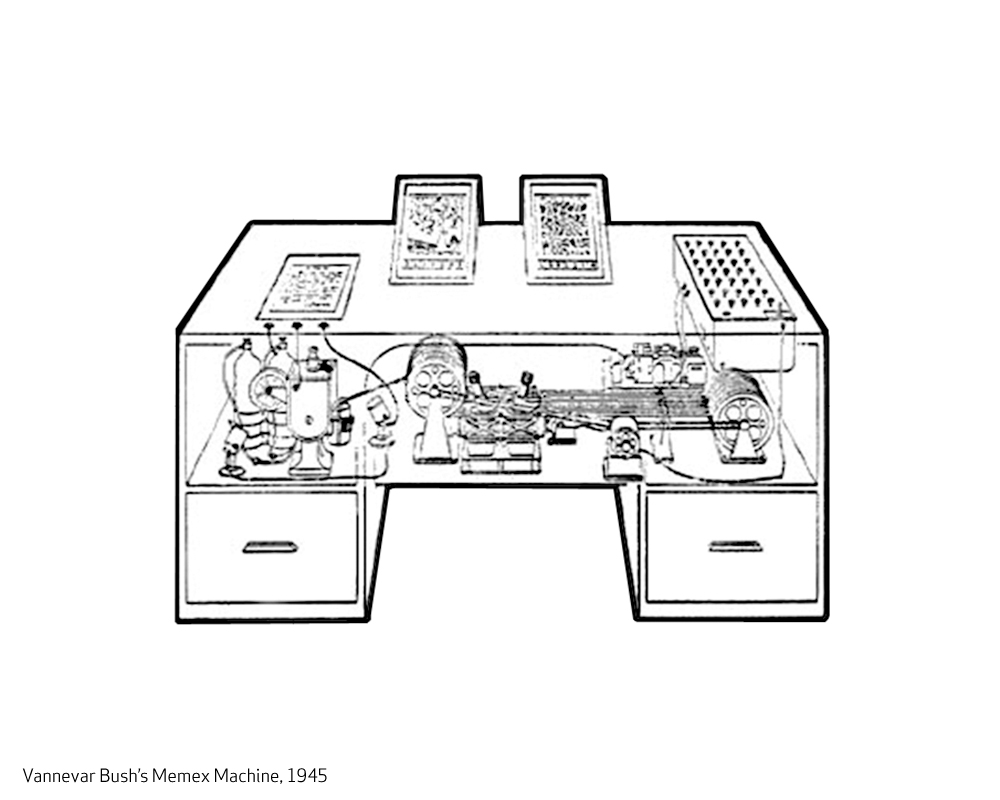The World Wide Web
Write up for CS344G: (Your) Great Ideas for Networked Applications reading on the World Wide Web.
Reading list
CT. J. Berners-Lee, R. Cailliau, and J.-F. Groff. 1992. The World-Wide Web.
Tim Berners-Lee, The World Wide Web: Past, Present and Future
Before the web

Reading list
CT. J. Berners-Lee, R. Cailliau, and J.-F. Groff. 1992. The World-Wide Web.
Tim Berners-Lee, The World Wide Web: Past, Present and Future
Before the web
- Silos of information - incompatible protocols, networks and data formats
- At a time when more and more information is being recorded electronically
- As We May Think – Vannevar Bush [1945]
- “The summation of human experience is being expanded at a prodigious rate, and the means we use for threading through the consequent maze to the momentarily important item is the same as was used in the days of square-rigged ships.”
- “This is the essential feature of the memex. The process of tying two items together is the important thing.”
- Shared information space through which people and machines could communicate
- Globally shared information space
- Machine analysis of work patterns, interactions and thoughts
- Allow random associations between any objects
- Independent systems (scalable)
- No constraints on language/OS/user mental model of data
- Easy to use (browse and add new information)
- Supports all platforms and forward compatible
